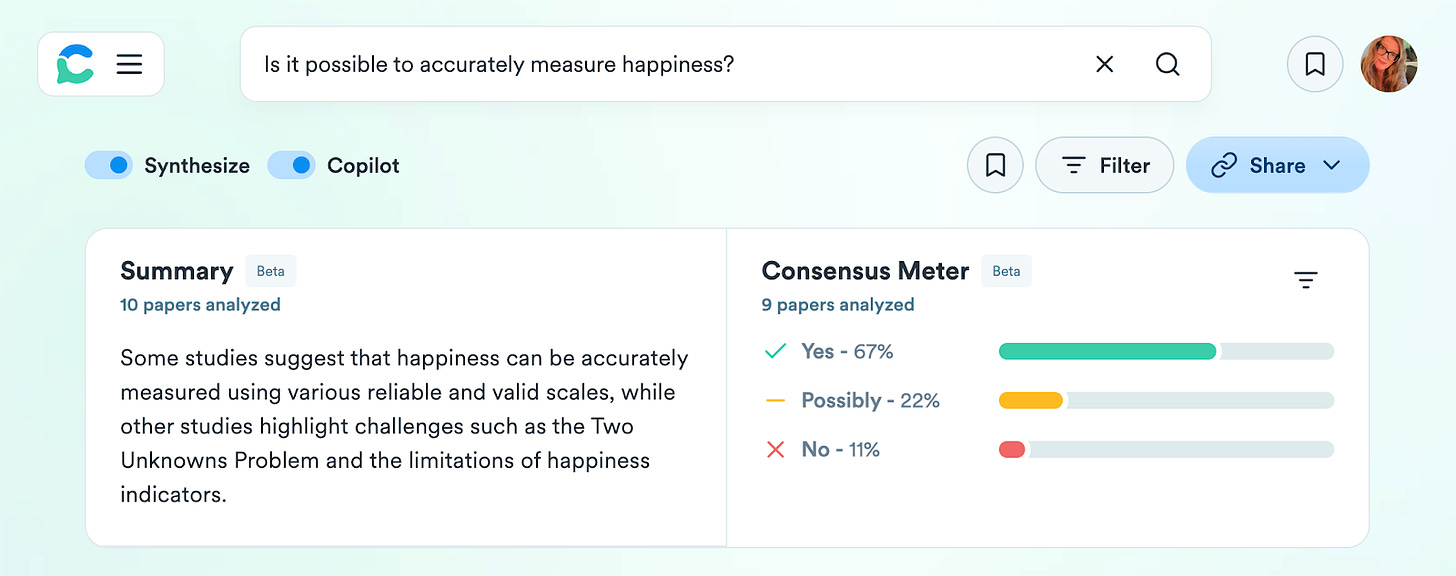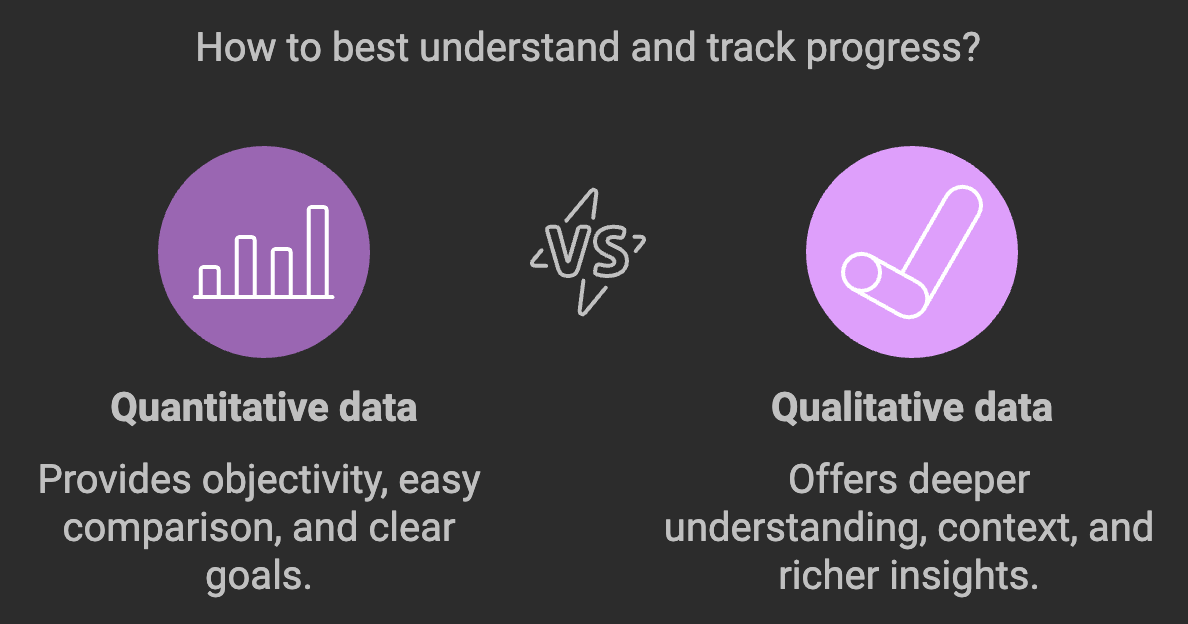🌸 ikigai 生き甲斐 is a reason for being, your purpose in life - from the Japanese iki 生き meaning life and gai 甲斐 meaning worth 🌸
The mantra of 'data-driven' has pushed us towards an excessive focus on metrics, obsessed with quantifying every aspect of our lives. From business performance to personal success, Key Performance Indicators (KPIs) dominate our decision-making processes. While measurement can drive progress, I’m worried that our fixation on metrics often comes at the cost of meaning, fulfilment, and true success. By exploring the balance between quantifiable goals and intangible values, we can redefine success and pursue a more holistic approach to life and work.
The allure of metrics
Numbers feel concrete; they give us a sense of control in an unpredictable world. Management guru Peter Drucker's famous quote, "What gets measured, gets managed," has become a guiding principle in both business and personal development. I’ve parroted it myself heaps of times, seduced by the promise of clarity and progress that metrics offer.
But why are we so obsessed with metrics? In part, it's because:
1. They provide a sense of objectivity and fairness
2. They allow for easy comparison and benchmarking
3. They simplify complex realities into digestible data points
4. They create a clear path for improvement and goal-setting
However, this obsession with measurement comes with hidden costs that we often overlook.
What we lose in the numbers game
As we chase quantifiable success, we risk losing sight of what truly matters;
1. Parenting - One of life's most valuable and challenging roles has no universally agreed balanced scorecard. How do you measure the impact of a bedtime story or a comforting hug? Love, support, and presence can't be easily quantified, yet they matter more than *anything*.
2. Brand Value - The intangible worth of a strong brand, built on trust and emotional connection, doesn't fit neatly into spreadsheets. Yet, these factors are often critical to long-term success.
3. Employee Satisfaction - While we can measure turnover rates and productivity, the deeper aspects of job satisfaction; sense of purpose, workplace relationships and personal growth are harder to quantify, but vital for long-term success and innovation.
The risks of overemphasising metrics include;
Loss of meaning; When we focus solely on what can be measured, we can lose sight of the deeper, often intangible aspects that give life and work true meaning.
Neglect of intangibles; Important but hard-to-measure factors like creativity, empathy, and long-term sustainability may be overlooked in favour of easily quantifiable short-term gains.
Misaligned priorities; Overemphasising metrics can lead to a ‘hitting the target but missing the point’ mentality, where we achieve numerical goals at the expense of more meaningful outcomes.
Reduced innovation; When everything is measured, there's less room for experimentation and the kind of unmeasurable exploration that often leads to breakthrough innovations.
Burnout and stress; Constant pressure to meet numerical targets can lead to stress, anxiety, and burnout, negatively impacting both personal wellbeing and long-term productivity.
Ethical compromises; In extreme cases, an overemphasis on metrics can lead to unethical behaviour as people or organisations try to "game the system" to hit their targets.
The hidden cost then is a potential loss of our ability to value and nurture the aspects of life, and work, that truly make us human and bring deep, lasting fulfilment. In chasing numbers we risk becoming and creating cogs in a machine, rather than fully realised individuals pursuing meaningful lives and careers.
Redefining success beyond GDP
I’ve always wondered why in the Western world so much attention is spent on measuring our nations by Gross Domestic Product (GDP).
It feels like our society cares more about economic health than wellbeing more broadly.
This doesn’t sit well with me, and surely if we flipped the script then the moolah would follow quickly thereafter?
A narrow focus on economic output fails to capture the full picture of societal wellbeing. Recognising this shortcoming, alternative measures are emerging. The World Happiness Report, gaining traction since Bhutan sponsored a UN resolution on happiness in 2011, offers a more holistic view of national success. This approach acknowledges that a nation's prosperity, like an individual's, encompasses more than just wealth.
The UK ranks 20th in the World Happiness Report, it makes me wonder where the Isle of Man would stand if measured separately. I’d like to think it would be higher, can we push for this to be a thing?
The value of measurement
KPIs and metrics aren’t inherently bad of course, they’re important for clarity especially in business processes;
1. Accountability; Metrics provide clear benchmarks for performance.
2. Goal Setting; Measurable objectives help individuals and organisations strive for improvement.
3. Progress Tracking; Without some form of measurement, it's challenging to gauge advancement.
4. Motivation; Achieving measurable goals can boost morale and drive further success.
The key lies in using metrics wisely, as tools to support broader objectives rather than as ends in themselves.
Balancing metrics and meaning
The key lies in balance. We need to appreciate both the measurable and the immeasurable. This is where the concept of eudaimonic versus hedonic happiness comes in.
I highly recommend Dr Laurie Santos’ free online course The Science of Wellbeing if you are interested in learning more about this, a worthy investment of time!
Hedonic pleasure is about short-term, surface-level happiness, like a KPI that boosts quarterly profits.
Eudaimonic happiness, on the other hand, is about long-term fulfilment and purpose. It’s deeper and harder to measure, but it’s the kind of happiness that truly sustains us.
The more we chase metrics without reflecting on meaning, the more we lose the opportunity to build a life driven by purpose.
Journal prompts for finding your balance
I’m reflecting on this in my journal by working through the following prompts;
What are we measuring in our life or work? Are these metrics aligned with what truly matters to us?
What valuable aspects of life or business defy easy measurement? How can we honour these?
How can we incorporate both measurable goals and intangible values in our pursuit of success and fulfilment? How do we measure how true we've been to ourselves and how much positive impact we've had on others?
Embracing the immeasurable
As I pursue my ikigai I'm realising that life's most precious aspects often elude quantification. Happiness, meaning, and connection are complex, messy, and deeply personal. They don't fit neatly into a balanced scorecard, and that's not just okay, it's beautiful.
Perhaps it's time we loosened our grip on metrics and refocused on what truly makes life worth living.
I invite you to share your thoughts and experiences. How do you balance the pursuit of metrics with the search for meaning? Your insights could help others find their own path to a more fulfilling life and career.
In the words of the song that inspired this reflection, sometimes the most valuable moments are when we ask someone to "lie with me and just forget the world"—metrics, KPIs, and all.
Sarah, seeking ikigai xxx
PS - I’m a simple soul, once the essay title was stuck in my head so was this beautiful love song;







So many great points
I don't care about metrics but I care about people. I had to go search for the numbers yesterday to support the StaTurday note.
It obviously didn't matter to too many either... 😂
Better off back to writing ✍️